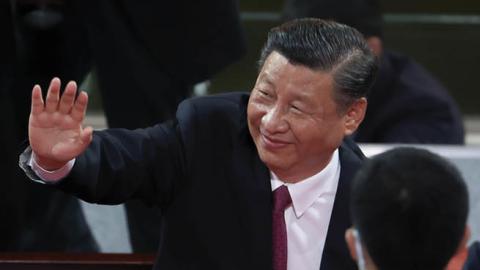“A man of determination and action,” gushed China’s official news outlet Xinhua in a courageously fawning 12,000-word profile. “A man of profound thoughts and feelings,” the news agency continued, “a man who inherited a legacy but dares to innovate, and a man who has forward-looking vision and is committed to working tirelessly.” This extraordinary figure, few readers will be surprised to learn, is Xi Jinping, the paramount ruler of China, who is now consolidating his power across the Communist Party and the Chinese state. Though preoccupied with the cares of office, Mr. Xi still has time for the little people, the Xinhua profile marveled. Mr. Xi “used his own money to help finance the medical treatment of a villager from Liangjiahe.” This paragon of leadership even inspects “pigsties and toilets to obtain first-hand information of people’s livelihood.”
On the evidence of this unsigned article, President Xi can check “achieve total control over Xinhua” off his to-do list. If China’s leaders are as wise as its propagandists are servile, the Middle Kingdom’s future is secure.
Mr. Xi, who intends to be enthroned with Mao and Deng Xiaoping among the greatest heroes of Chinese Communist history, certainly has accomplishments to celebrate as he approaches his third five-year term in power, with no limit on additional terms. Not only has he sidelined his domestic opponents and centralized power in China to a degree not seen since Mao’s death; he has vastly expanded China’s global footprint and led a transformative military buildup that is forcing the U.S. to rethink its Pacific strategy and position.
Read the full article in The Wall Street Journal


















